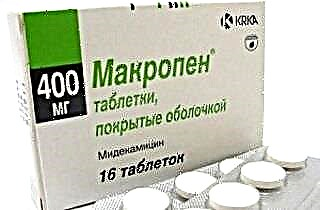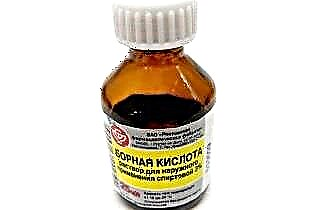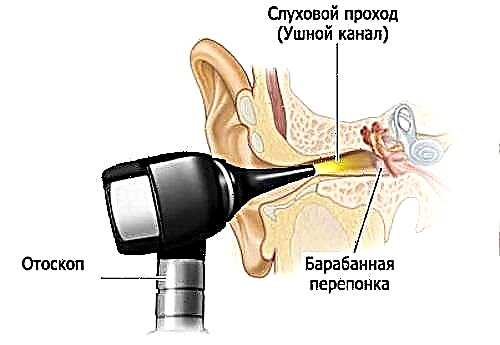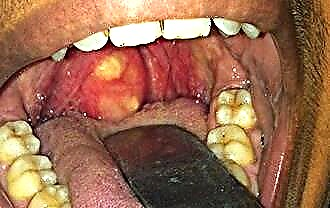Probably, there is not a single adult who, at least once in his life, would not have encountered such a disease as otitis media. The arsenal of means available to modern medicine for the treatment of ear diseases, fortunately, is quite wide.
But how otitis media is treated depends on many different factors: the cause of the disease, the rate of its development, the presence of complications, the age and physical condition of the patient. Therefore, if you suspect you have otitis media, you should not prescribe medication yourself - the effect may be unpredictable. It is better to go to a doctor who will conduct a comprehensive diagnosis and prescribe a treatment regimen.
Otitis media: features and dangers
 Otitis media is a common name that unites inflammatory processes occurring in various parts of the ear. There are several subspecies of this disease, which are classified according to:
Otitis media is a common name that unites inflammatory processes occurring in various parts of the ear. There are several subspecies of this disease, which are classified according to:
- localization - external, middle and internal;
- etymology - infectious, allergic, traumatic;
- intensities - acute, chronic;
- duration - acute, subacute, chronic;
- type of inflammation - catarrhal, exudative, purulent.
What anti-inflammatory drugs for otitis media will be the most effective depends on the correct diagnosis. And it is almost impossible to do it on your own. Therefore, it is very important not to delay the visit to the doctor - the earlier the treatment is prescribed, the lower the risk of complications.
Launched otitis media can lead to the most serious consequences. A large accumulation of pus puts strong pressure on the eardrum and can rupture, allowing the infection to reach the inner ear, from where it can travel to the brain and cause inflammation of the meninges (meningitis).
In addition, the infection can enter the bloodstream and spread throughout the body, causing inflammation of the lymph nodes and, in severe cases, sepsis.
Drug treatment
Modern drugs for the treatment of otitis media in adults can cope even with a complicated disease within a few days, but only if the medicine and its dosage are chosen correctly.
At the initial stage of the disease, anti-inflammatory drugs are usually sufficient. With severe pain and acute course, drops with antibiotics and anesthetic components are prescribed.
 Often the most effective combination is when drops and tablets are used at the same time for otitis media in adults. This allows you to simultaneously act on the focus of the disease and prevent further spread of the infection. In some cases, physiotherapy procedures are additionally connected, which significantly speed up the healing process.
Often the most effective combination is when drops and tablets are used at the same time for otitis media in adults. This allows you to simultaneously act on the focus of the disease and prevent further spread of the infection. In some cases, physiotherapy procedures are additionally connected, which significantly speed up the healing process.
The most popular remedies for otitis media in adults are:
- "Otofa" - drops based on rifamycin. It is most often chosen when one thinks that it should drip into the ear for otitis media of any etymology. Effective against most microorganisms. It has practically no contraindications, but it is prescribed with caution during pregnancy. May cause irritation and itching.
- "Ciprofloxacin" is a powerful antibacterial drug for otitis media in adults, which quickly copes with severe inflammation and a purulent form of the disease. However, it has a number of contraindications and many side effects: nausea, dizziness, insomnia, candidiasis, angina pectoris. It is prescribed only in cases where milder drugs do not help.
- "Ampicillin" - inexpensive, but very effective pills for otitis media, which prevent the further spread of infection. Promotes rapid recovery, but often causes allergic reactions, diarrhea, dysbiosis. It is prescribed for otitis media of the middle and inner ear. The course of treatment is at least seven days.
- "Macropen" is a potent remedy for otitis media in adults, which is available in tablets and granules and contains the broad-spectrum antibiotic midecamycin. Quickly treats inflammation caused by pathogenic microorganisms, is effective in acute and purulent otitis media. Has minimal contraindications: pregnancy and acute liver failure.
 "Sofradex" is an effective complex remedy for ear otitis media, which works simultaneously in several directions: relieves inflammation, eliminates itching, kills pathogenic microorganisms, eliminates manifestations of an allergic reaction. Contains steroids, therefore long-term use and use during pregnancy is not recommended.
"Sofradex" is an effective complex remedy for ear otitis media, which works simultaneously in several directions: relieves inflammation, eliminates itching, kills pathogenic microorganisms, eliminates manifestations of an allergic reaction. Contains steroids, therefore long-term use and use during pregnancy is not recommended.
These are just a few of the remedies that treat otitis media in adults, in fact, there are many more of them. It is best if they are selected by a doctor after a comprehensive diagnosis, which includes an analysis of the ear microflora.
The course of treatment depends on the severity of the disease, but lasts at least 5-7 days. And in no case can you interrupt it yourself.
Physiotherapy
Any medication for ear inflammation works much more effectively when combined with physiotherapy. They significantly speed up the healing process and help to quickly restore the normal state of the skin. The most commonly prescribed procedures are:
- UHF - deep heating of the ear with high frequency electromagnetic pulses. This promotes the speedy expiration of pus, helps to reduce pain and stop the inflammatory process.
- Electrophoresis - under its influence, the medicine for otitis media, injected into the ear with the help of gauze turunda, penetrates into the deeper layers of the epidermis and its effectiveness increases several times. It is used in cases where small doses of antibiotics are sufficient.
- Microcurrent therapy - is prescribed for patients who, for medical reasons, it is advisable not to use antibacterial drugs for otitis media. It promotes the active course of biological processes, rapid cell regeneration and enhancement of the body's protective functions.
- Ultraviolet irradiation is detrimental to most pathogenic microorganisms, but does not penetrate deeply. Therefore, it is effective only for otitis externa or otitis media. Copes well with fungal infections and wet eczema. May dry out the skin and cause flaking.

At home, it is useful to warm up the ear with a blue lamp if the otitis media is not purulent. General contraindications to physiotherapy are: pregnancy, cancer, fever, and disturbances in the cardiovascular system.
Folk remedies
At the initial stage of the disease and with otitis externa, time-tested folk remedies also help well, the simplest of which is ordinary boric alcohol. It is buried in the sore ear 2-3 times a day and helps relieve pain and inflammation.
Here are some more simple ways to treat ear inflammation at home:
 chop a clove of garlic or a piece of onion well, mix with honey 1: 1, wrap in gauze and insert into the ear canal;
chop a clove of garlic or a piece of onion well, mix with honey 1: 1, wrap in gauze and insert into the ear canal;- drip a sore ear with warm camphor oil;
- Mix 2 drops of tea tree oil with 10 drops of almond oil, warm slightly and drip into the ear;
- purulent otitis media (with an intact tympanic membrane) is well treated with freshly squeezed horseradish juice - 3-5 drops in each ear;
- Mix sea buckthorn oil with honey 1: 1, heat in a water bath and drip a sore ear.
It is better to decide to use folk remedies or traditional medicines for otitis media in adults together with the attending physician.
In some cases, improper use of "grandmother's methods" can cause very serious complications or accelerate the development of the disease. It is important to remember that otitis media is an insidious disease that can lead to partial or complete hearing loss if not properly treated.

 "Sofradex" is an effective complex remedy for ear otitis media, which works simultaneously in several directions: relieves inflammation, eliminates itching, kills pathogenic microorganisms, eliminates manifestations of an allergic reaction. Contains steroids, therefore long-term use and use during pregnancy is not recommended.
"Sofradex" is an effective complex remedy for ear otitis media, which works simultaneously in several directions: relieves inflammation, eliminates itching, kills pathogenic microorganisms, eliminates manifestations of an allergic reaction. Contains steroids, therefore long-term use and use during pregnancy is not recommended. chop a clove of garlic or a piece of onion well, mix with honey 1: 1, wrap in gauze and insert into the ear canal;
chop a clove of garlic or a piece of onion well, mix with honey 1: 1, wrap in gauze and insert into the ear canal;

